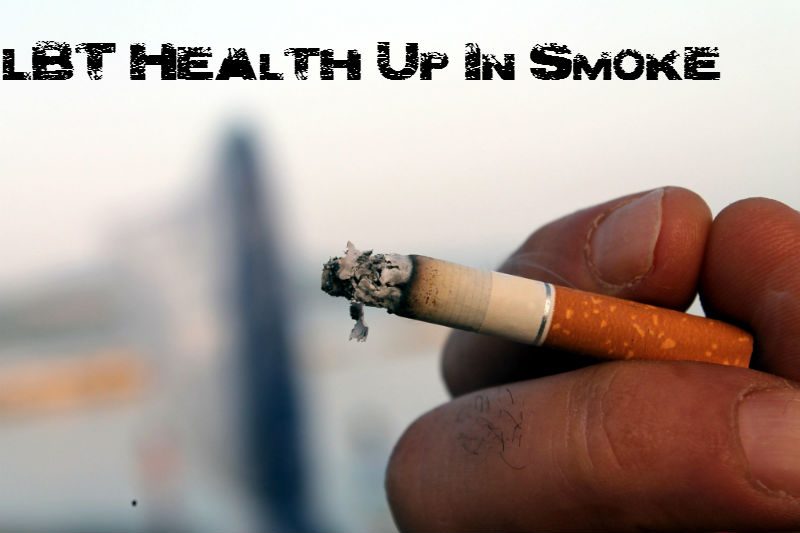Five Harm Reduction Strategies
My very first visit to a gay bar–a lesbian bar specifically– was to Philadelphia’s stereotypically named (I am, alas, not making this up) Sisters. The bar was done in deep 90s deep lez style, with paint-on-glass art of iconic lesbians, as if they were print negatives: KD Lang, Madonna, Billie Jean King, and either Alix Olson or Alix Dobkin, we could never decide which.
It seemed like a gay man decorated the bar, ala the movie the Bird Cage, without ever once meeting an actual lesbian: “What? What? It’s what they like!” This might be, if I recall my Philly queer history correctly, exactly what happened.
My first visit was a few years before the City told Philly-folks they couldn’t consume cigarettes inside where other people were trying to breathe. As the bar door opened, smoke actually billowed out. The bouncer had to squint to see my ID, the air was so thick.
Although smoking is banned in many bars in many states, as a community we still smoke way more than the generation population. According to a 2012 CDC study, 68 percent more.
If you’re a smoker, you’ve been lectured until you’re blue in the face (or…was that from the smoking) about quitting. Unfortunately, you may have noticed that lectures don’t work. In nursing school we learned about a behavioral theory called the Stages of Change, which basically posited that people change when they’re damn good and ready and not a minute before. Sometimes people quit smoking when they get pregnant, or have a health scare, or break off a bad relationship or find a stable place to live. But if you’re not ready to quit, it doesn’t mean you can’t be healthier.
Try some harm reduction strategies in the mean time:
1. Make smoking inconvenient.
Don’t keep a pack of cigarettes near you, instead only keep them in one spot in the house so you’ll have to go fetch an individual cigarette each time you want to smoke. Wrap each individual cigarette in aluminum foil and replace them in the pack; when you want to smoke you’ll have a physical challenge to undertake before you’re able to do so.
2. Switch up hobbies to something incompatible with smoking.
Join a non-smoking softball league, or go to church instead of brunch if the brunch place allows smoking while eating. Or brunch instead of church if the church allows smoking while praying.
3. Loosen the association between smoking and pleasurable activities.
If your morning cup of coffee is always accompanied with a cigarette, tell yourself you can have a cigarette every other morning with your coffee. Instead of smoking after sex, chew gum instead. Or have another go around with the sex even. And then remind yourself that quitting smoke increases orgasm potential. I’m not saying research supports that, but it seems like it’s probably true.
4. Develop a smoking trade-off strategy.
Give yourself a health-related task to do every time you have a cigarette. For example, you might climb a flight of stairs or eat a stalk of broccoli. Although you probably shouldn’t do both at same time because, choking.
5. Celebrate every small success.
Did you smoke less this week than last week? That’s a frickin victory, throw yourself a party! Life is short. And unfortunately tends to be even shorter if you smoke a lot.
